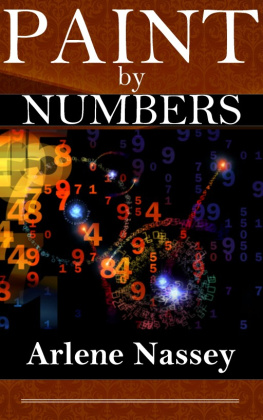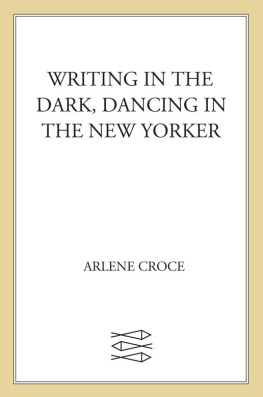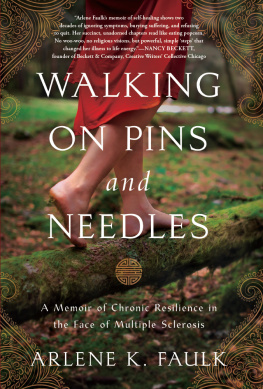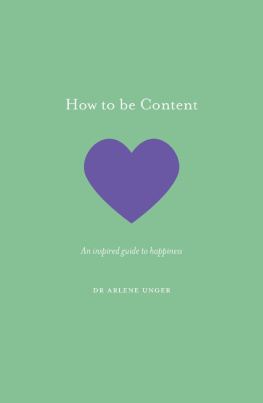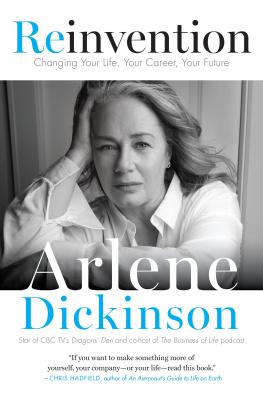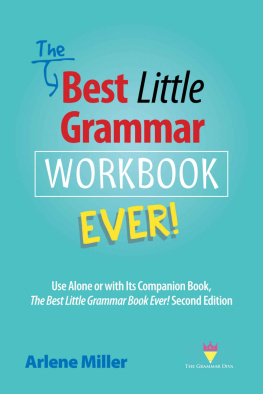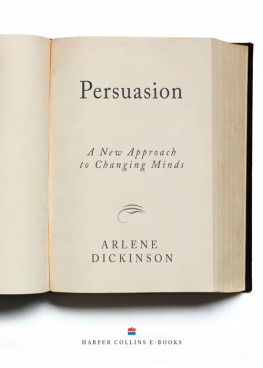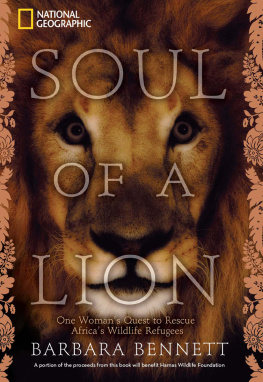I wrote this memoir to show how a particular life is shaped, in part, by cultural and social forces. Because I was interested in the development of consciousness, I tried, as much as possible, to recreate my response to events and people in my life as I understood them at the time. The people who appear in this work are characterized from this perspective, as their histories are filtered through my memory. I wanted to tell the truth with this narrative, but I understand that my truth is only one of many.
Without the womens liberation movement, this work would never have been conceived or undertaken. By giving me an understanding of womens roles in our culture, the womens movement has touched my life and changed it profoundly. I owe a debt to those brave and angry women of the second wave of feminism who recognized womens oppression and had the courage to confront it in society and in their own lives. The civil rights and black power movements, whose spokespeople articulated some of what was wrong in America and gave me an awareness of both my whiteness and my ethnicity, have been equally important in the development of my consciousness.
This book, which began as a dissertation, owes its life to John H. Bracey, Jr., and Johnnetta B. Cole, who convinced me that autobiography was an appropriate vehicle for expressing my concerns about ethnicity, race, and feminist theory. Being neither famous nor old enough to be a proper subject for an autobiography, at first I was plagued with the problem of thinking So what? and depended on an army of readers to tell me that someone other than me cared about the details of my past. I will always be grateful to John Bracey, who, the day after I had given him a chapter, always called to say, Keep going. Lorna Petersons unwavering enthusiasm was a constant reminder that my life did matter, and Joanne Kobin helped me to see I could be a real writer. I will never forget Bettina Apthekers praise, which came at a particularly difficult period. Also deserving of thanks in helping to move the work along are: Lisa Baskin, Mary Bowen, Judy Davis, Howard Kobin, Sara Lennox, Alec Martin, Dale Melcher, Leah Ryan, Ruth Thomasian, and Marea Wexler.
As Lion Womans Legacy moved from a dissertation to a book, I had additional help from my friends. Lee Edwards and Irma McClaurin Allen suggested ways to cut the original six hundred pages. More readersElizabeth V. Spelman, Clare Coss, Louise Murray, Jay Kidd, Kim Townsend, Sue Thrasher, and Margaret Randallhelped me to continue to believe in the books value. From the day she suggested I write an autobiography to the time the final manuscript went into production, Johnnetta B. Cole has been both steadfast and, as is her wont, an activist in her support of this book.
Reclaiming my ethnic identity would not have taken the form it did without my intimate and intense interaction with Martha Ann Ayres, a WASP who was willing to fight with me. I cannot adequately express my gratitude to her, both for the fights and for her empathy. I trust that we will continue to fight and love each other for many more years.
Finally, I thank my grandmother, who survived and passed the story of that survival on to me.
I t was Easter Sunday, 1954, and my family and I were coming out of church. I had on the new clothes I had made for the occasion and high heels. I wore lipstick but no other makeup. My legs were shaved, but my eyebrows remained untweezed.
The church, the Holy Cross Armenian Apostolic Church, on 187th Street between Audubon and St. Nicholas avenues in Manhattan, was just around the corner from the Presbyterian church where my cousin Susan was probably standing at that very moment waiting to shake hands with the minister, as was the custom in regular churches. In our church the congregation had no such opportunity, since the priest who officiated at the three-hour, highly ritualistic ceremonyconducted in ancient Armenianmerely disappeared behind the ornate altar after the service.
My time in church hadnt inspired me, nor did I feel any particular relationship to the God whose resurrection it celebrated. The point of going to church on Easter Sunday was to try to become an American. Regular church attendance is as common among Armenians as it is with other groups, but my parents rarely went to church. The only time they went with any regularity was on Palm Sunday because, as my mother reminded us every year, she liked to have the palms that were given out to the congregation in the house for the year. Palm Sunday and the dry fronds that for me bore no resemblance to any living plant were fine, but going to church on Palm Sunday was not enough. As I understood it, real Americans went to church every Sunday or, at the very least, every Christmas and Easter.
Years earlier, in an attempt to be the best kind of American, I had tried regular church attendance. Since I was about nine or ten years old at the time, this meant going to Sunday school. For a few Sundays I walked to church with my grandmother, who did attend regularly, though the practice did not seem to make her any less old country. The class consisted of coloring pictures of Bible scenes for what seemed an eternity. Then we were marched into the old, dark, incense-laden church for the last half hour of the long service.





